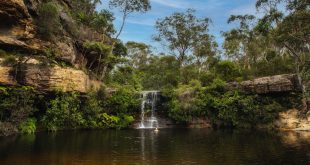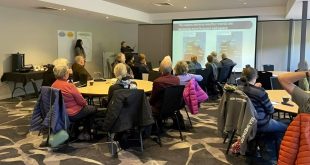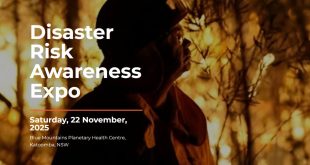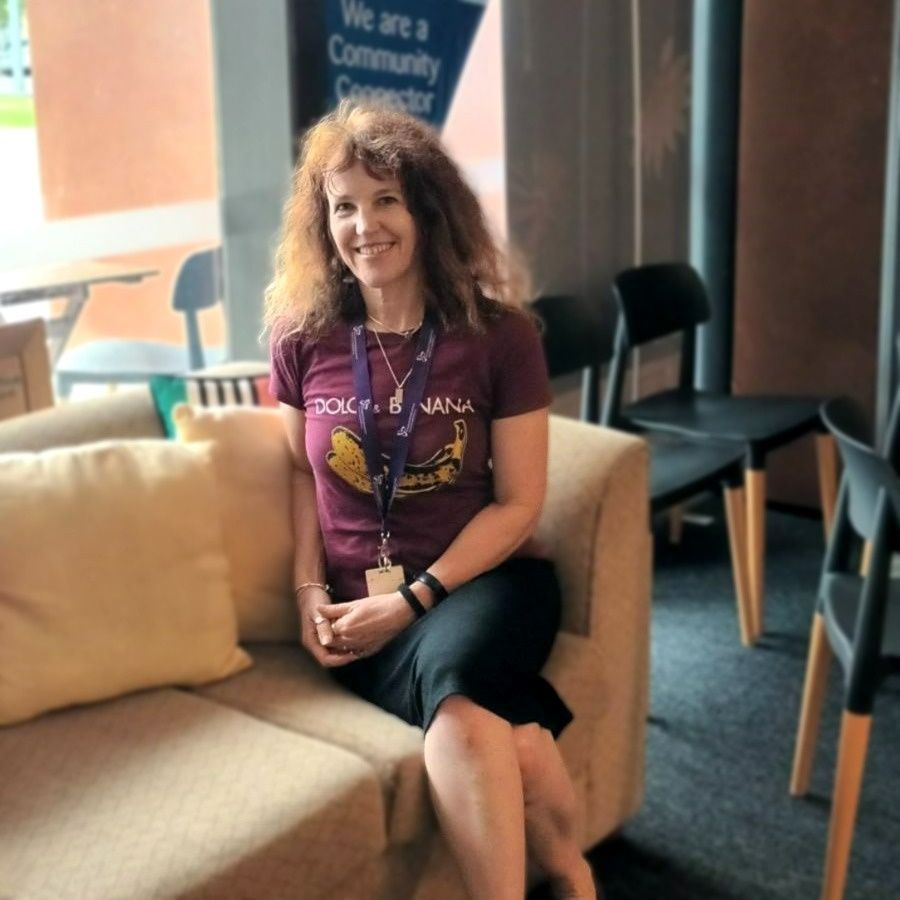
Community Development Worker, Tonje Akerholt at Springwood Neighbourhood Centre Co-operative. (Photo: Gabiann Marin)
Story by Gabiann Marin
For over 45 years the Springwood Neighbourhood Centre Co-operative has been providing much needed community resources, advice and facilities to the people of the Blue Mountains. Tonje Akerholt and the other staff at the Centre work tirelessly to ensure that the space continues as somewhere everyone can feel welcome and connected.
Key Points:
- Studies have shown that people with well-established social networks and strong connections with community, social institutions and programs are more likely to deal successfully with personal crises and economic adversity.
- Neighbourhood centres offer innovative and community-focused activities which are accessible and create strong social inclusion.
- As well as referral and advice services, the Springwood Neighbourhood Centre Co-operative offers a number of ways in which community members can volunteer their time to help others. This can result in great health and social outcomes for volunteers.
Nestled in a small shopfront in Springwood’s bustling Hub complex is the unassuming but important Springwood Neighbourhood Centre Co-operative, a place for the community to gather, get information and find resources.
This small but mighty space and its hard-working staff do so much more than you may expect, from providing local service advice and referrals, innovative community programs, food and emergency supplies and resources for bushfire and disaster recovery. The Springwood Neighbourhood Centre is a vital community resource, open and available to all.
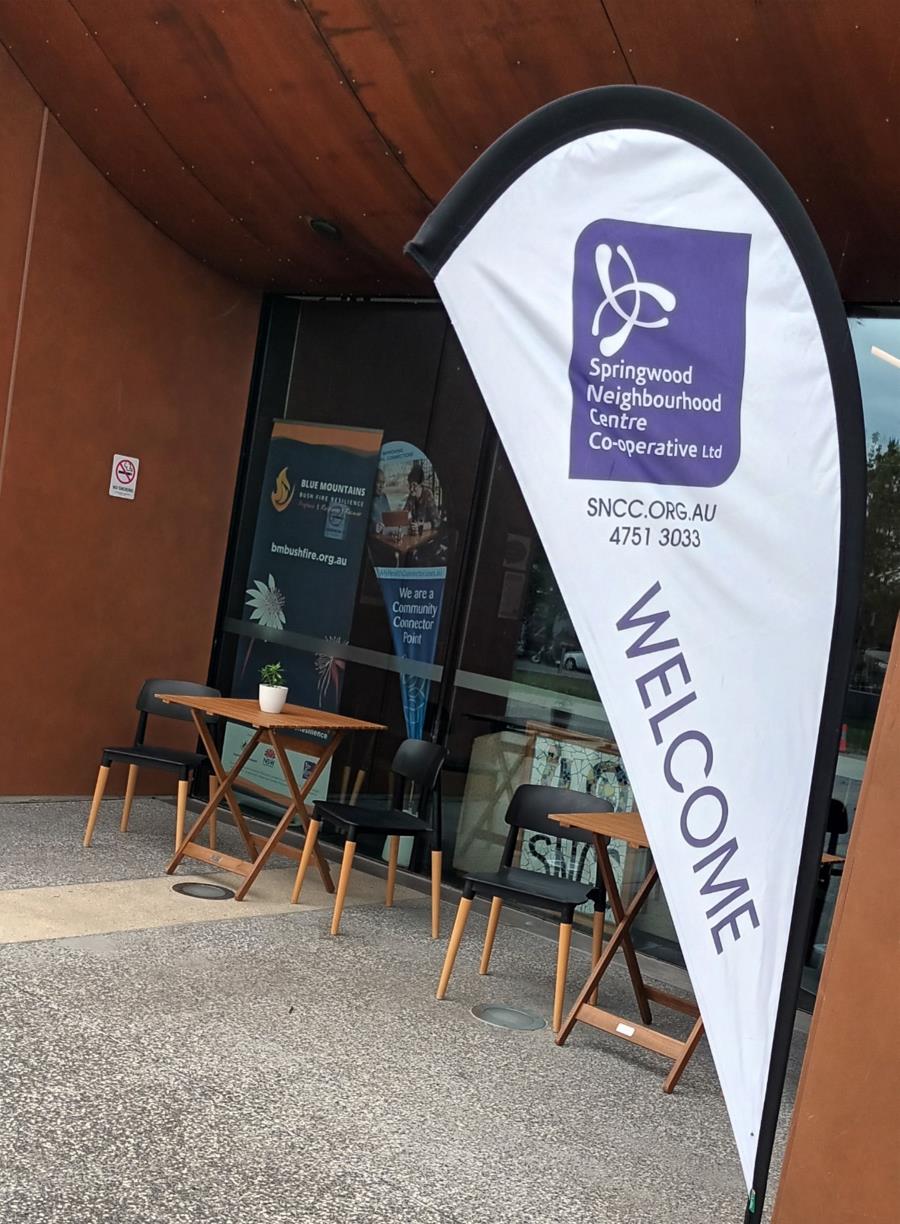
Open to all. Springwood Neighbourhood Centre is a great place to go for coffee and respite. (Photo: Gabiann Marin)
In the lead up to last summer’s bushfire season the staff at the Centre were busy preparing programs and resources to help the community in the event fires made an unwelcome return to the area.
Thankfully this year we avoided any major bushfire threat, but in an area which still remembers not just the events of 2020, but also the shocking and devastating 2013 Winmalee fires, staff here know that when a fire or disaster does occur, fast and effective community resourcing can be the difference between a resilient community or one which is devastated irrevocably.
“We are always here as an advice and referral centre, so people can come in who might not know where to start with bushfire preparedness and we can work with them individually to help them develop a plan,” explains Tonje Akerholt, a community development worker at the Centre.
Yet while the Centre provides a lot of emergency care and information – everything from contact details for local services, food donations to families and individuals doing it tough and a number of resources to help the community prepare for bushfires, Tonje believes that its real role is to be a centre for everyone in the community at all times of the year, during feast, famine, times of hardship and times of plenty.
The role of a neighbourhood centre, Tonje believes, is to facilitate people to find connections, as well as provide advice and assistance. A truly diverse and resilient community can only be created through encouraging everyone to feel connected and involved.
“We run a lot of community programs, some have been running for years, others are started because a member suggests it or we find a way to access an innovative grant which can help to foster something amazing within the community. “
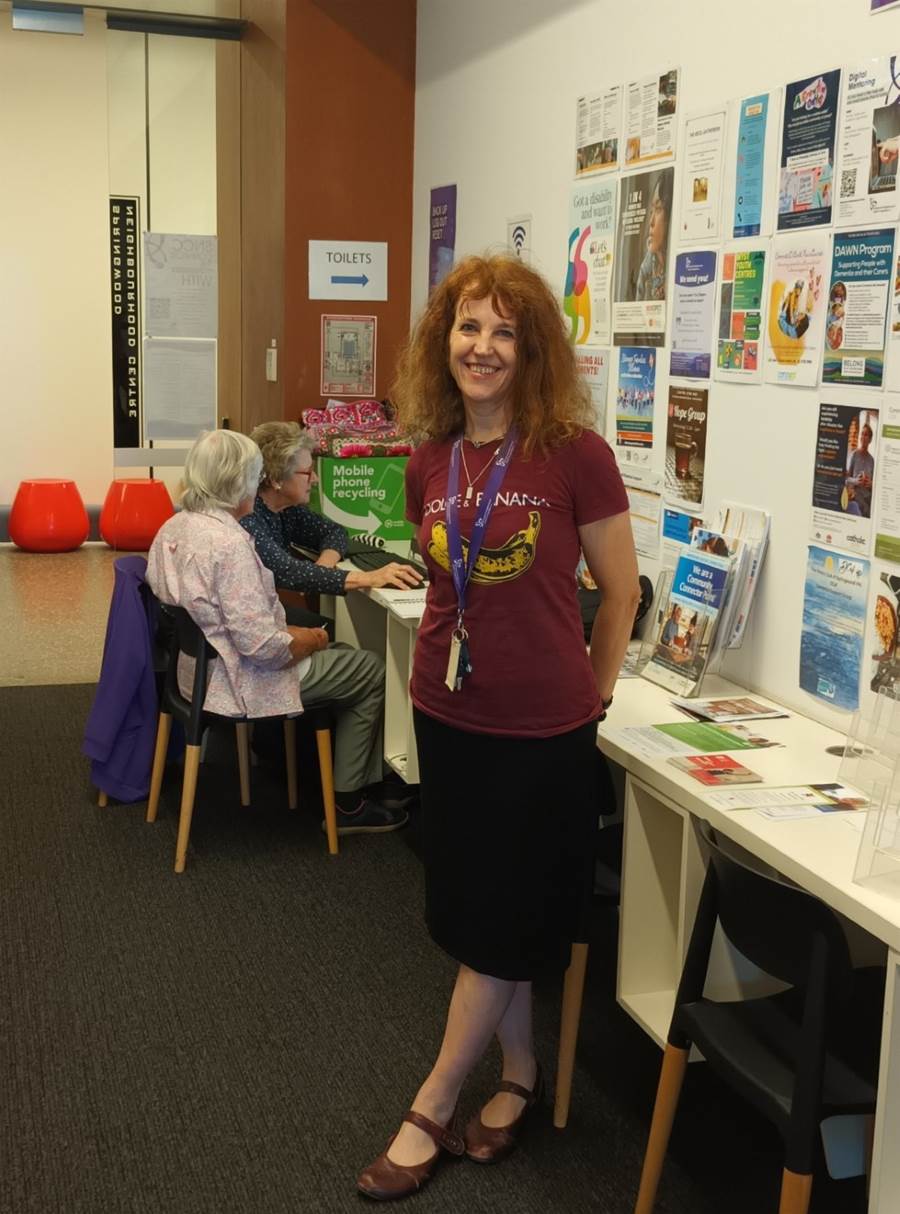
Tonje Akerholt at the Centre with participant Helen Lewsley and Volunteer Digital Mentor Barbara Gow (Photo: Gabiann Marin)
Traditionally, Tonje acknowledges, the Centre has attracted a lot of seniors and people struggling with social issues, which is an important part of their overall contribution to the community, but she stresses that the Centre is really a place for everyone.
Since the COVID lockdowns the need for a greater sense of community and social inclusion has been understood more widely. It is clear that people who are elderly, or who are impacted by mental or physical health issues are more likely to suffer from social exclusion, but building a more connected and vital community across all sectors and generations is imperative if the whole community is going to flourish.
Studies have shown that people with well-established social networks and strong connections with community, social institutions and programs are more likely to deal successfully with personal crises and economic adversity. Community is the DNA of happy and healthy populations as well as personal health. Similar studies show that people who feel isolated or excluded from community are more likely to suffer from health issues, depression, stress, anxiety and mental health disorders.
Creating Connection
Tonje and the team are very proud of the programs and initiatives they have managed to create and facilitate, often on tiny budgets.
“It is a fundamental part of being a human, belonging to a community. And because of things like COVID and social media we have become so insular, we are not going out and connecting like we used to,” Tonje says.
In order to foster social inclusion, the Centre supports everything from fitness groups, Yoga, and Tai Chi for those who want to get or keep active, to art classes, choirs and acoustic music groups for the artier among us. There is the annual Blue Fringe Art and Literature Prize which showcases artworks from those who struggle with mental health issues, and the Centre facilitates a social card and games group – open to anyone who wants to engage in some casual social interaction.
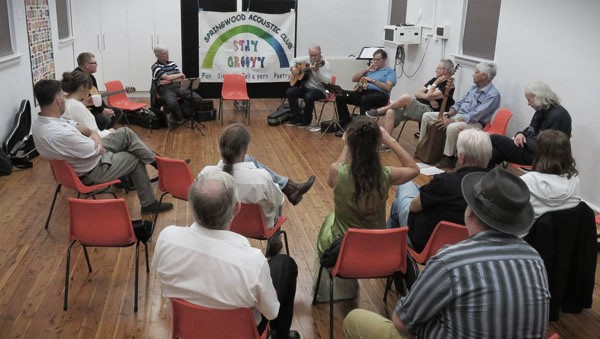
Springwood Acoustic Club is one of several innovative and social activities hosted by the Centre (Photo: courtesy Springwood Neighbourhood Centre Co-operative)
There are also more innovative ideas, like the small Recycle, Redesign and Recreate group, colloquially known as RRR, who meet fortnightly, bringing in items which need to be sewed or upcycled. The crafty members sit together in comfortable companionship, sharing helpful tips on each other’s projects and just enjoying the quiet friendship and amity of working within a group while completing their own personal projects.
Enid, a Winmalee local, who has been a driving force behind the redesign group, is incredibly appreciative of the support given by the Centre.
“It can be quite isolating, sitting at home just working on a project, but in this group, you can work on what you like. Just come, sit, and share space and company.“
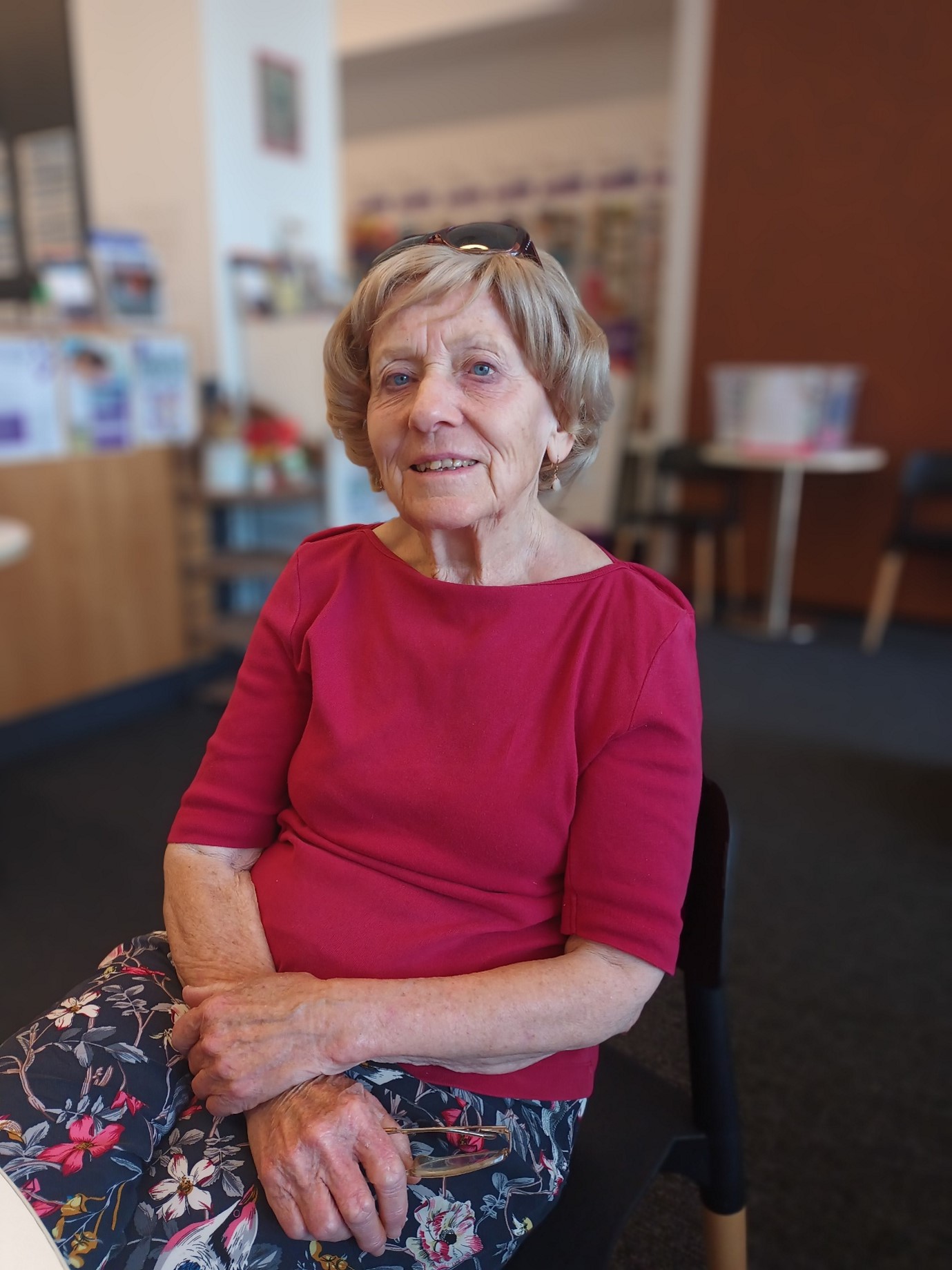
Local craftperson Enid Schaffer has extended the opportunities within the Centre’s RRR program to support other community groups such as the Wild and Woolly Warriors. (Photo: Gabiann Marin)
Enid has extended her designing and crafting skills, honed through the group, into other wonderful community projects including the Woolly Wildlife Warriors, a group of women who meet to knit, sew and crochet pouches and rehabilitation nests for injured native wildlife. It’s an example of how small ideas can turn into productive community initiatives.
While the RRR began as a thriving group of individuals, after COVID the group diminished, leading the Centre to work with the existing members to revise and re-ignite the idea as a more dynamic and diverse activity which could attract a new batch of crafty makers.
“A lot of the events we run have been suggested by or run by members of the community,” Tonje reveals, underlining one of the key principles of effective social inclusion: the ability for members of the community to identify what works for them and have opportunities to design or give feedback on the projects or activities which are most suitable. This approach has led to an incredible variety of activities, events and programs; far more than you would think possible for such a tiny space and such a small group of staff.
“We do have very small budgets so we have to look at what is feasible. Most of our programs are supported through grants which have limited periods of time, so we really need to think about and provide the kinds of ongoing programs that can be embraced and run by the communities who engage in them.”
Intergenerational Connections
Recently the Centre has focused on a number of intergenerational activities and providing innovative and inclusive ways for the community to connect, both inside and outside the Centre itself.
During the recent COVID lockdowns of 2020 and 2021, we all saw how social exclusion can affect the health and wellbeing of even our most resilient community members. Even though the Springwood Centre, like so many community organisations, was severely restricted in what it could offer in the way of social engagement, Tonje and the rest of the team were coming up with innovative and clever ways that members of the community could engage and support each other.
One of the most successful initiatives was when Tonje approached locked down students from a local Faulconbridge Public School class and invited them to write letters to isolated elderly members of the community.

A simple letter writing program facilitated by Tonje kept social isolation at bay during Covid. (Photo: Will Milne Attribution (CC BY 2.0))
“It started with the kids just asking loads of general questions about what these people used to do when they were 10 years old, and if they had ever been through a pandemic before and what other things have you been through that were as bad or worse than COVID. That kind of thing,” Tonje recalls; “But it became this wonderful moment of connection as those who received the letters really felt like someone else was taking an interest in them, and their lives and their thoughts.”
Several of the letter recipients began doing family research to provide even more detail in their responses and the result was engaging the kids to write back and create real moments of important human connections and value sharing for older and younger members of the community. This small initiative has grown over time to blossom into one of the Centre’s most popular onsite programs: Majors and Minors.
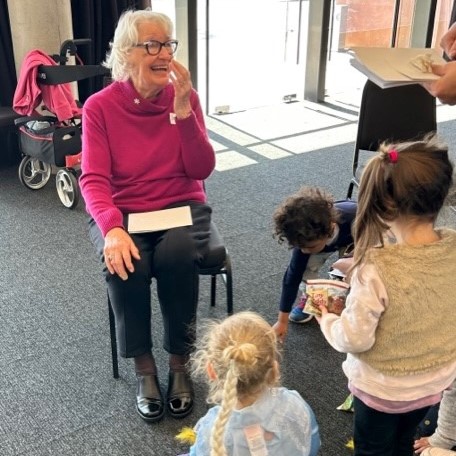
The Majors and Minors Intergenerational program has brought incredible benefits for young and old! (Photo: courtesy Springwood Neighbourhood Centre Co-operative)
“After COVID lockdowns that ABC program came out (Old People’s Home For 4 Year Olds) and I thought, I could do something like that, get kids and seniors together.”
Tonje started to plan an intergenerational activity where the benefits she saw through the letter writing activities could be expanded to include more direct engagement between the older and younger members of our community, in collaboration with a local preschool, who were really keen to be involved.
“We started a monthly get together for seniors and young kids. It’s been incredibly popular. So we applied for some funding and now we can run it more effectively.”
Majors and Minors has been running successfully for two years and is about to be revamped to include even better accessibility into 2024. The benefit to the seniors seems obvious with opportunities to engage with younger people, get out, be active, and share their lives with the next generation. But the benefit for the kids is equally important.
“There is a whole body of research that shows kids who have been part of intergenerational programs are more likely to stay on at school, less likely to get into trouble with the law, really significant benefits. And they all just love it.”
Tonje would love to expand the current program to involve older kids too, perhaps in an intergenerational planting program which could help older and younger participants share their knowledge and love of planting and sustainability – something that she is happy to say is a big focus of the younger generations and something that older generations often have lived experience of, having grown up in times when things were not quite as available as they are today.
“I am always thinking about what else we could do to connect with different groups in the community,“ Tonje enthuses, “and the Centre is always happy to hear about activities or events locals would like to be involved in.”
Volunteering
One of the other main opportunities for social inclusion which the Centre offers is the opportunity to connect to the community through volunteering. The Centre has a number of community programs that are always happy to welcome new volunteers.

Volunteering offers benefits for community and volunteers. (Photo: Creative Commons Attribution (CC BY 2.0))
“We facilitate a volunteer program where people can go and visit older residents, who would otherwise be socially excluded, to share a cup of tea, a chat, read a book or just hang out together, as well as more formal assistance like delivering food or helping others to do their shopping,” Tonje explains.
Even the smallest interaction can make a huge difference for older residents feeling isolated from the community, but the benefit for the volunteers is often less understood.
Recent research into the health benefits of volunteering undertaken by the Mayo Clinic in the USA found that those who volunteer their time to community projects not only enjoy stronger social ties and an opportunity to develop or hone professional and social skills, but they also have improvements in mental and physical health more generally. Volunteering really is good for everybody.
“Often when people retire, or they find they have more time than they expected, they feel a bit lost, like they have lost their purpose. If they start visiting someone or take them shopping – suddenly they have a purpose again. It almost always results in really strong friendships and social connections.”
Another more flexible volunteer option is offering to drive less-mobile people to appointments or Centre activities.

Volunteering doesn’t require a huge commitment. Simply driving someone to an appointment or activity helps others and creates social connections. (Photo creative commons Attribution (CC BY 2.0))
Many people across the Mountains would love to volunteer but are often unclear how to start or what volunteering opportunities may be available. But here again the Neighbourhood Centre can be a great place to start a volunteering journey as they are an important hub of opportunities and information.
“Just give us a call or pop into the Centre, tell us what you may be open to doing and fill out a volunteer form. We pay for and facilitate the police checks (which is mandatory) for any of our programs and give you any necessary training you may need. It really is a very simple and effective thing to do.“
Volunteering to help out may be simple, but ensuring that the volunteer relationship is beneficial for everyone is a bit trickier and requires a real understanding of community and individual needs. Thankfully, the staff at the Centre are all well trained in aged care and community services which has equipped them with the skills to expertly link the right person with the right volunteering opportunity.
”It’s a bit like matchmaking,” Tonje laughs. “We have to find the right combinations. Like if there are really different political views, we might not put those two together, but if we see two people who have different views but are curious and interested in learning, we might think about linking them up. It’s all about finding the people who will work well together.”
Tonje and the rest of the team may have a lot on already, but they are more than happy to talk to anyone who has other ideas which the Centre could help to facilitate, whether it be other community activities, volunteering ideas or simply an existing group that needs a bit more support.
“If someone came in and said, I know a lot of people who want to do a weekly walking group or something, then we would be happy to talk about how we could support that. I mean we have to think about budgets, because like with all community organisations, money is never really abundant, but we find ways of doing things.“
Of course, no one has to come up with a new idea in order to get involved, with the variety of things on offer it could be as simple as just turning up to one of the current activities or applying to volunteer for one of the existing home visit programs, or volunteering at the Centre itself.
And that is what the Centre and its staff excel at. Helping people make the right connections.
So, next time you’re in Springwood why not pop in for a cup of tea (available by donation) and free pastry or biscuit (donated by local bakeries) and get to know your neighbours and facilitators, volunteer for one of the programs or pop in for one of the many activities during the week: all of which can be found on the website here.
Current opening times are:
Monday: 9 am – 3 pm
Tuesday: 9 am – 3 pm
Wednesday: 9:30 am – 1 pm
Thursday: 9 am – 3 pm
Take Action:
- Volunteer: There are a number of fantastic volunteer opportunities available through Springwood Neighbourhood Centre Co-operative. Pop in and have a chat or go to their website and fill out a quick and easy Volunteer Form.
- Join in: There are plenty of different activities to choose from. To find out more, including times and costs, go to the Springwood Neighbourhood Centre Co-operative website, or pop in during opening times and chat to the friendly staff to share or get information.
Share this article:
This story has been produced as part of a Bioregional Collaboration for Planetary Health and is supported by the Disaster Risk Reduction Fund (DRRF). The DRRF is jointly funded by the Australian and New South Wales governments.
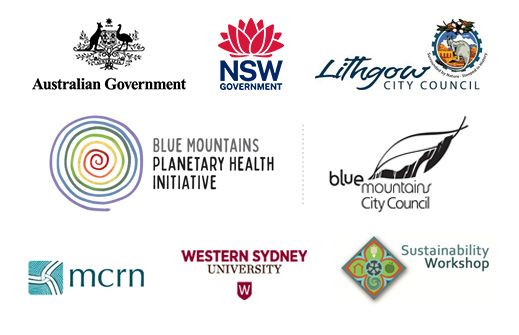

![Join multi-award-winning photographer Sue Lightfoot at the Planetary Health Wellness weekend on Sat 28 Feb as she shares how taking up photography to manage her mental health after PTSD has opened up a life filled with creativity, compassion and consciousness. Living a creative life has expanded to include creating permaculture gardens from recycled materials and finding multiple ways to give back to the community. Through creativity she has learnt "to see and feel the world, to live with awe and wonder, to change lenses, shift [her] focus and embrace all forms of light … to enjoy nature and mother earth and accept we are all connected.” She’s been inspired by Miksang, Tibetan for “good eye”, which is a form of contemplative photography that is about seeing and photographing the world exactly as it is, rather than how we want it to be, focusing on colour, light, texture, and pattern. Her session is free but reserve your place here (link in profile): https://events.humanitix.com/planetary-health-wellness-weekend
Learn more about Sue and her work here: www.suelightfoot.com
#miksangphotography #ptsdrecovery #mentalhealth #planetaryhealth #creativityformentalhealth #permaculture #goodeye #katoomba #bluemountains #community #togetherwecan #compassion #connection](https://springwoodlocalnews.com/wp-content/plugins/instagram-feed-pro/img/placeholder.png)
